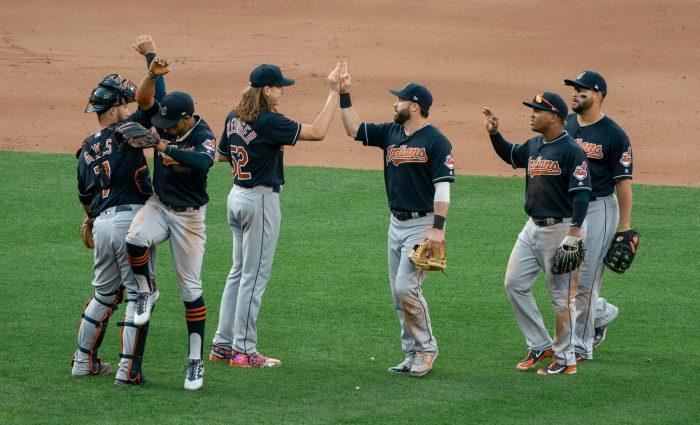Olympic fever enlivens London
Unruh is a senior sociology and radio double major and can be reached at tad.unruh@drake.edu.
I see a Union Jack flag slightly tattered, with fringed edges from excited waving. It is gripped so tightly that it looks like an extension of a human appendage. The flag is attached to a young, bright-eyed blonde boy, who is perched upon his father’s shoulders. His other hand is gripping his father’s forehead with such squeezing ferocity, as if it was the last Snickers bar in the world. Both are cheering on the Great Britain national team at the ticker tape parade in London on Monday, Sept. 10, the day after the Paralympic closing ceremonies.
It is a parade of the medal-draped heroes of a post-Imperial country beaming after its victories. They are also celebrating the return of the Olympics and Paralympics to London for the first time since 1948. The spectacular show of admiration, love and heroic worship at the parade was the definition of nationalistic pride, as it was rightfully deserved. London put on one hell of a show. But how was all of this perceived by the British themselves? How did they view the American side and the Olympics/Paralympics as a whole?
Nationalism and fandom together create a whirlwind of passion, excitement and, sometimes, blind ignorance — if you aren’t careful. For the people of London, one of the most culturally diverse cities in the world, it was a joy to plan and host the games. The performance of the Great Britain Team came as a pleasant surprise to the British people, says Justin Lorentzen, a sociology professor at Richmond University in London.
“The idea that Great Britain would do so well in the Olympics was a shock to most people,” Lorentzen said. “We garnered third place in the table, heading off people like Russia and Australia. We were astonished that we finished behind the USA and China because, perhaps, we don’t expect to do as well.”
As American sports fans, we expect to be the best. We expect to be at the top of the medal count, and whoever steals medals from our count is the villain. It is the way our sports culture and political culture are constructed.
If someone is preventing you from doing what you want to do (i.e. “winning”), then you try your hardest to beat them.
From the advertising, journalism and the people that I have spoken to, there is an overwhelming sense of pride regarding the whole of team Great Britain. Getting gold, silver and bronze medals showed that Great Britain’s athletic talent is on the “up and up,” and even more importantly, with the ever-growing diversity of the United Kingdom, that they can hold a games with such grace and support from the other participating countries. But that doesn’t mean there aren’t political issues the team has come across.
Lorentzen outlines this as he explained, “What is interesting for the Olympics is that when we field a team, we field a British team; it’s not a team from the United Kingdom, so it won’t be just England. It’ll be England, Scotland, Wales and Northern Ireland, so it goes across the nation.”
Team Great Britain encompassed all four countries within its ranks. This unification of nations in the Olympics isn’t seen anywhere else. England, Scotland, Wales and Northern Ireland are all long-steeped in nationalistic pride, which could cause tricky loyalties and understanding of the games, but professor Lorentzen feels that pride for the United Kingdon as a whole reigns supreme.
“So when a Scottish cyclist (like Chris Hally) wins gold after gold, he wins it for Team Great Britain, and the old entities are buried. Not only do we prefer that, because Ireland is so close to the United Kingdom, from a British point of view we will applaud Irish success, because we have those ties,” Lorentzen said.
The United Kingdom and London, for that matter, have gloriously held their heads high while on their quest for Olympic glory. While proud of their surprising success in the games that they held, they are most proud of their contribution to world culture, despite some nationalistic grey area. Overall, in a Olympic Games filled with heroes, glorious stories and incredible athletic competition, one can only hope the games come back to London soon enough.


